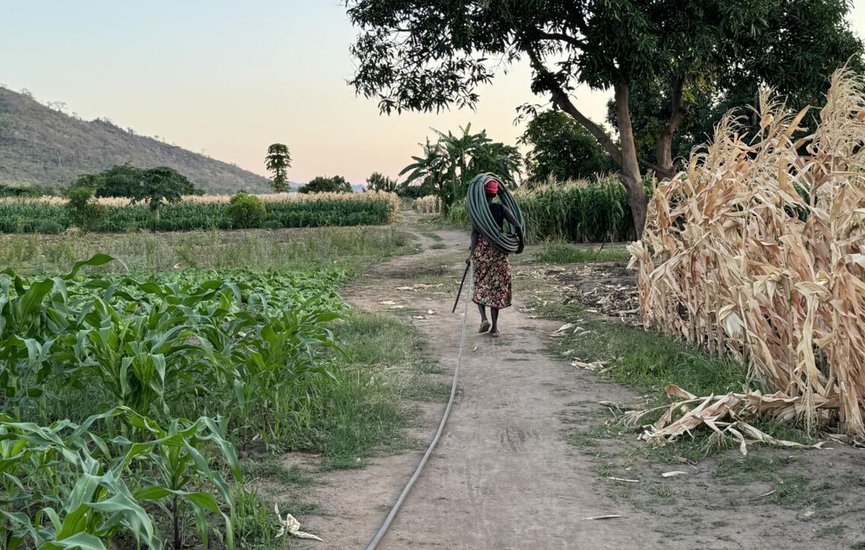Julius Chibonda has relocated twice in the past 16 months, seeking water and fertile land to sustain his farming aspirations. Like millions of rural Malawians, he faces increasingly unpredictable rainfall and droughts worsened by climate change.
The 61-year-old farmer, who is eager to talk and always quick to smile, became visibly disheartened when he saw the dry, barren land in Kampheko 2, where he once grew tomatoes, garlic, okra, and maize. “It hurts,” he said through an interpreter. “Water is life. Without water, nothing can exist.”
Malawi, one of the world’s poorest countries, relies heavily on agriculture, with over 80% of the population depending on it. However, 90% of farming is rain-fed, leaving the country particularly vulnerable to climate-related disasters such as cyclones and droughts. In 2023, Cyclone Freddy alone claimed over 1,000 lives in Malawi.
Since 2019, nearly a million people have been displaced by cyclones, with many moving multiple times. In response, the government launched a program to help relocate 1,662 households living in disaster-prone areas. The slow-onset effects of climate change are also contributing to internal migration, with 400,000 people displaced within the country during the 2023 drought.
The World Bank projects that 216 million people globally could be displaced by climate impacts by 2050, with 86 million of them in sub-Saharan Africa. Yet, migration could offer a form of adaptation, though it may exacerbate challenges for already vulnerable populations.
In Malawi, rising temperatures and population growth are intensifying pressure on resources. Local officials report a growing movement from southern Malawi to the northern and central regions, as livelihoods in the south are severely impacted by droughts.
In the Mangochi and Ntcheu districts, small-scale farmers speak of dwindling water supplies and poor crop yields. Chibonda, who moved to Kampheko 2 in 2021, initially enjoyed fertile soil and reliable water access. However, the borehole he relied on dried up, and vandals destroyed it in 2024. With the land becoming less fertile and water sources depleting, Chibonda moved again in January 2024, this time 120 miles north-east to a plot near Lake Malawi, where he hopes to grow sugarcane, bananas, and an orchard of fruit trees.
Other families, like that of Gladys Khumbidzi, have faced similar struggles. Khumbidzi moved 22 years ago due to flooding, but now finds her water supply increasingly unreliable, with crops failing during both excessive rainfall and drought. At 60-something, she feels too old to move again, resigned to staying where she is.
Water scarcity is a significant challenge in rural Malawi, with 37% of people in rural areas walking more than 30 minutes to access water. Despite efforts to improve access, the country is far from meeting the UN’s sustainable development goals for water access. The situation calls for urgent action, but with funding cuts and increasing needs, the challenge is becoming even greater.
Chibonda’s story illustrates the harsh reality of climate migration in Malawi, as he continues his search for water to fulfill his entrepreneurial dreams and secure his family’s future.
